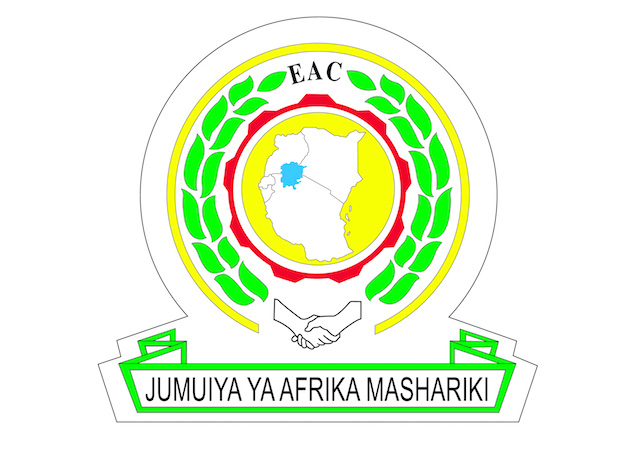
EAC boosts Intra-African Trade as continental integration gains momentum
East African Community Headquarters, Arusha, Tanzania, 18th July, 2025: The 11th edition of the Assessing Regional Integration in Africa (ARIA XI) report recognizes the East African Community (EAC) for its significant progress in advancing intra-African trade.
Published on 13 July, 2025 by the United Nations Economic Commission for Africa (UNECA), in collaboration with the African Union Commission (AUC) and the African Development Bank (AfDB), the report provides critical insights into Africa’s progress on regional integration and offers targeted policy guidance to accelerate the continent’s economic transformation.
According to the report, intra-African trade represents just 16% of Africa’s total trade, underscoring the urgency of strengthening continental integration. Among Africa’s Regional Economic Communities (RECs), the Intergovernmental Authority on Development (IGAD) posted the highest intra-African trade share at 36%, largely due to robust trade flows from Kenya, Uganda, and significant re-exports through Djibouti.
The EAC followed closely, demonstrating substantial intra-African trade engagement driven by the benefits of its Customs Union and progressive trade facilitation initiatives.
Between 2019 and 2023, the EAC recorded that 28% of its merchandise exports were destined for African markets, significantly surpassing the continental average. Similarly, 19% of the EAC’s imports originated from within Africa, reflecting strong regional linkages. Nevertheless, the majority of EAC’s trade remained externally oriented, with Asia accounting for 56% of exports and 64% of imports, highlighting both dependency risks and opportunities to pivot toward deeper intra-African trade.
The report also emphasizes the pivotal role of informal cross-border trade (ICBT) in Africa. It estimates that ICBT could raise intra-African trade statistics by an additional 7–16%, with informal exchanges comprising 30–72% of total cross-border trade between neighbouring countries. This suggests that the EAC’s actual intra-African trade engagement may be even higher than officially reported.
Commenting on the report’s findings, Ms. Annette Mutaawe Ssemuwemba, the EAC Deputy Secretary General in charge of Customs, Trade and Monetary said “the ARIA XI report confirms that the EAC is one of the leading regions on the continent in terms of intra-African trade. This is a testament to the strength of our Customs Union and the success of our Single Customs Territory in reducing barriers and facilitating trade within the region and beyond.”
Ms. Ssemuwemba further stressed that “while we are proud of this progress, the fact that most of our trade is still directed outside Africa underlines a strategic vulnerability. This presents a clear opportunity for us to leverage the African Continental Free Trade Area to build stronger regional value chains, diversify our export destinations, and reduce our exposure to global shocks’, added Deputy Secretary General.
DSG said EAC remains committed to working with Partner States, the African Union, and continental institutions to fully implement the AfCFTA and accelerate the Action Plan for Boosting Intra-African Trade.
“Strategic investments in infrastructure, harmonization of standards, and reducing non-tariff barriers will be crucial in realizing our shared vision of a more integrated, resilient, and prosperous Africa.”
Ms. Ssemuwemba reaffirmed the EAC commitment to continue collaborate closely with stakeholders across the region to ensure that the gains from trade and economic integration are fully harnessed for the benefit of all East Africans.
“We extend our profound appreciation to the United Nations Economic Commission for Africa, the African Union Commission, and the African Development Bank for their remarkable efforts in publishing the 11th edition of the Assessing Regional Integration in Africa (ARIA XI) report’’
The Deputy Secretary General commended the report for not only documented progress, challenges, and pathways towards realizing the African Economic Community, including an African Continental Customs Union and Common Market, but also provided policymakers, practitioners, and stakeholders across the continent with an indispensable tool to guide collective action toward a more integrated, prosperous, and resilient Africa.
For more information please contact:
Florian Mutabazi
Media Coordinator
Corporate Communications and Public Affairs Department
EAC Secretariat
Arusha, Tanzania
Tel: +255 785288428
Email: This email address is being protected from spambots. You need JavaScript enabled to view it.
About the East African Community Secretariat:
The East African Community (EAC) is a regional intergovernmental organisation of eight (8) Partner States, comprising the Republic of Burundi, the Democratic Republic of Congo, the Republic of Kenya, the Republic of Rwanda, the Federal Republic of Somalia, the Republic of South Sudan, the Republic of Uganda and the United Republic of Tanzania, with its headquarters in Arusha, Tanzania. The Federal Republic of Somalia was admitted into the EAC bloc by the Summit of EAC Heads of State on 24th November, 2023 and became a full member on 4th March, 2024.
